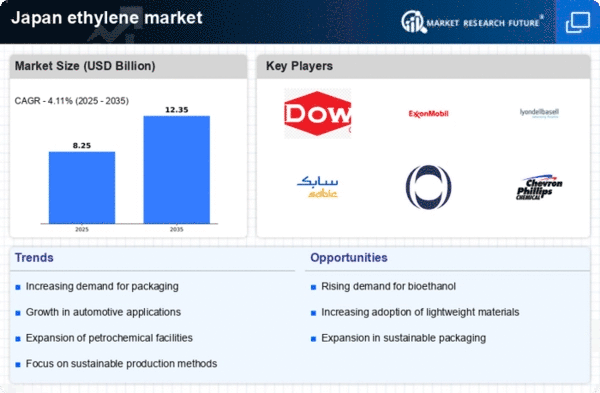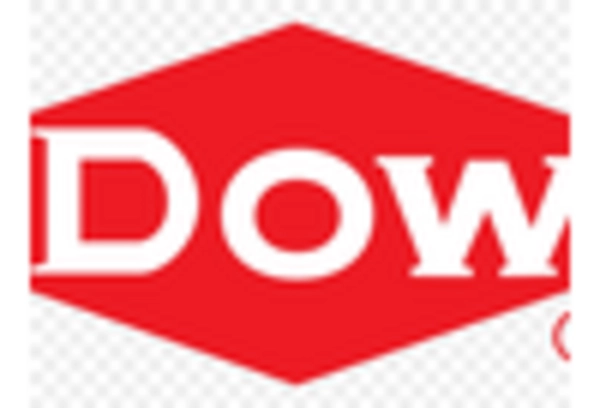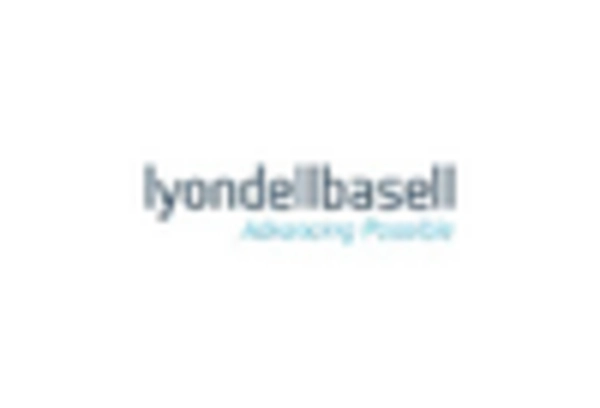The ethylene market in Japan is characterized by a competitive landscape that is increasingly shaped by innovation, sustainability initiatives, and strategic partnerships. Key players such as
Dow Chemical (US), ExxonMobil (US), and SABIC (SA) are actively pursuing strategies that emphasize technological advancements and operational efficiencies. Dow Chemical (US) has focused on enhancing its production capabilities through digital transformation, while ExxonMobil (US) is investing in sustainable practices to reduce its carbon footprint. SABIC (SA) is leveraging its The ethylene market share in Asia, indicating a trend towards regional consolidation among major players.In terms of business tactics, companies are localizing manufacturing to better serve regional markets and optimize supply chains. The competitive structure of the market appears moderately fragmented, with several key players exerting influence over pricing and innovation. This fragmentation allows for a diverse range of products and services, but also intensifies competition as companies strive to differentiate themselves through unique offerings and operational excellence.
In October Dow Chemical (US) announced a partnership with a leading technology firm to develop advanced digital solutions aimed at optimizing ethylene production processes. This strategic move is likely to enhance operational efficiency and reduce costs, positioning Dow as a leader in the digital transformation of the industry. The collaboration underscores the importance of integrating technology into traditional manufacturing processes to remain competitive in a rapidly evolving market.
In September ExxonMobil (US) unveiled its new sustainability initiative, which includes a commitment to reduce greenhouse gas emissions from its ethylene production facilities by 30% by 2030. This initiative not only aligns with global sustainability trends but also enhances ExxonMobil's reputation as a responsible corporate entity. The strategic importance of this move lies in its potential to attract environmentally conscious investors and customers, thereby strengthening ExxonMobil's market position.
In August SABIC (SA) expanded its production capacity in Japan by investing in a new ethylene plant, which is expected to increase output by 15%. This expansion reflects SABIC's commitment to meeting the growing demand for ethylene derivatives in the region. The strategic significance of this investment is twofold: it not only boosts production capabilities but also reinforces SABIC's competitive edge in a market that is increasingly focused on supply chain reliability and responsiveness.
As of November current trends in the ethylene market indicate a shift towards digitalization, sustainability, and the integration of AI technologies. Strategic alliances are becoming more prevalent, as companies recognize the need to collaborate in order to innovate and enhance operational efficiencies. Looking ahead, competitive differentiation is likely to evolve from traditional price-based competition to a focus on innovation, technological advancements, and supply chain reliability. This shift suggests that companies that prioritize these areas will be better positioned to thrive in the dynamic landscape of the ethylene market.

















